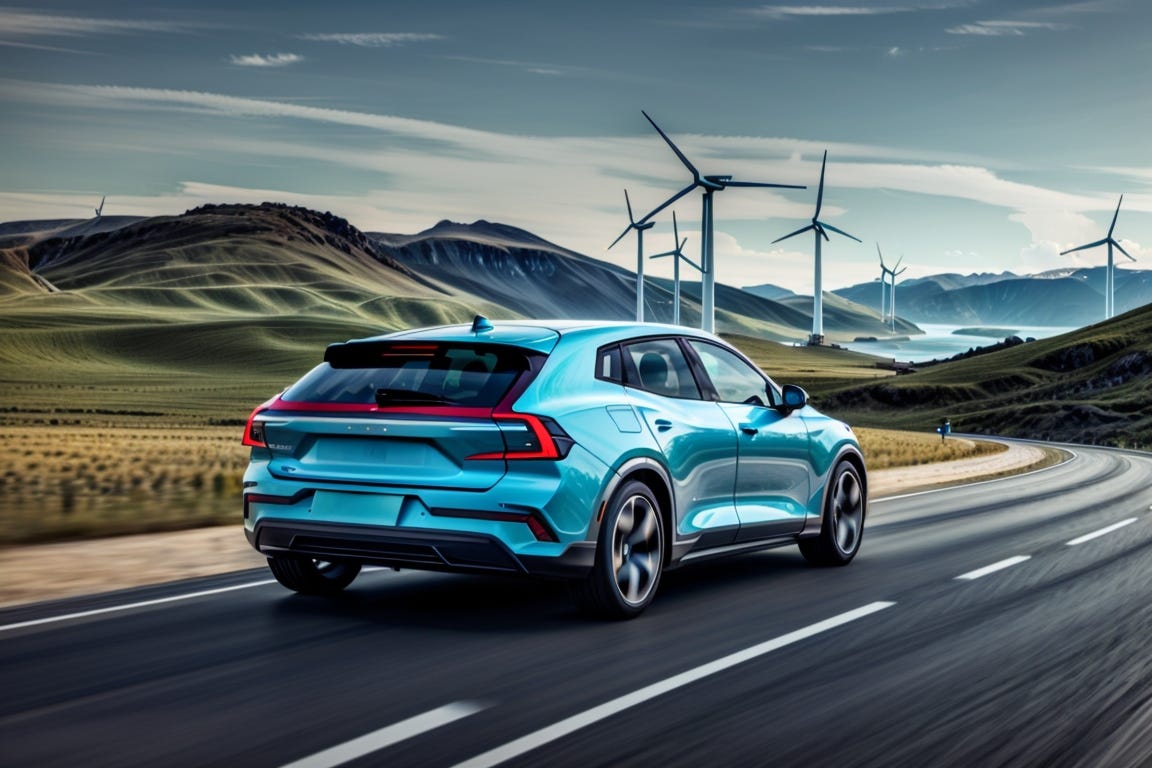How Far Can an Electric Car Go on a Single Charge?
In-depth look at how far today's electric cars can drive on a single charge in the UK. We cover average EV range, impact of rapid charging, models with the longest range, and how capacity has improved
Electric vehicles have seen enormous improvements in driving range over the last decade. But many prospective EV owners still have questions surrounding how far electric cars can realistically travel between charges. This article provides key facts on the average range of EVs in the UK, how
different factors impact distance per charge, and how today’s figures compare to the average UK driver’s needs.
Average Driving Distance on a Single Charge
Recent advancements in battery technology have extended the capabilities of electric vehicles. On average, most electric cars available today can travel 150 to 300 miles on a single full charge according to UK estimates(1). For regular daily commute distances and shorter trips, today's EVs generally have more than enough range without needing to stop to recharge.
Real world range however does depend on driving style and conditions. More aggressive acceleration and high speeds will deplete range quicker compared to smooth and steady driving. Cold weather in the winter months can also impact usable range compared to warmer seasons(2). But for most UK drivers' regular needs, an average EV's range should suffice.
The Impact of Specific EV Models on Driving Range
While 150 to 300 miles is the average for electric cars today, the potential distance on a single charge can vary more widely depending on the specific EV model. Different models have distinct battery capacities, motor efficiencies, aerodynamics and weight which all impact range(3).
Heavier electric SUV models require more battery output to move compared to a sleeker, lighter sedan, so will have lower overall range as a trade-off. The battery's physical size and chemistry are other key factors determining usable driving distance per charge. Older EV batteries also tend to offer shorter ranges as technology has improved over time.
So when choosing an electric vehicle, carefully compare the advertised range estimates across different models to pick one suited for your regular driving habits. Models like the Tesla Model S can achieve over 400 miles on a charge, while more compact EVs may max out at under 200 miles(4).
The Role of Rapid Charging in Extending an EV's Range
One way drivers can extend an electric car's functional range is by using rapid public chargers during a journey. Many modern electric vehicles are compatible with 50kW rapid chargers that can add around 100 miles of range in 35 minutes(5).
This means on longer trips, taking short 15-30 minute rapid charging breaks allows EVs with moderate range to cover greater distances. Apps can also plan EV routes to incorporate optimal charging stops along the way.
Home charging (up to 7kW) offers the slowest charging times, while ultra-rapid chargers (150kW+) can charge even quicker than standard 50kW rapid units. But for most purposes, a 50kW rapid charger offers the best balance of speed and availability to maximise an EV's usable range when driving longer distances.
The Improvement in Average EV Range Over the Years
Electric vehicle driving range has steadily increased over the UK's “electric decade”. In 2011, the average battery range of an electric car was just 74 miles. By 2020, this had risen dramatically to 259 miles - a 250% improvement over 10 years(6).
Experts predict this rapid upward trajectory in range capabilities to continue thanks to ongoing battery tech advancements. Further efficiency gains through improved motors and aerodynamics will also enable electric cars to travel farther. This trend bodes well for range anxiety concerns diminishing as EVs match and eventually surpass the capabilities of petrol/diesel vehicles.
Battery Size Correlates Directly With Maximum Range
The most crucial component determining an EV's potential range is the battery pack size, measured in kilowatt-hours (kWh). The more kilowatt-hours of energy storage capacity an electric car battery has, the farther it can drive before needing to recharge(7).
Many new electric models offer customers a choice of battery sizes. The versions with larger batteries cost more, but allow longer driving range between charges. For example, the 2022 Nissan Leaf comes with a 40 kWh base battery delivering up to 168 miles per charge. The upgraded 62 kWh extended range battery provides up to 239 miles on a single charge(8).
So battery size has a direct impact on range. Larger batteries increase maximum distance capabilities but also raise vehicle cost. Buyers should balance desired range with their budget.
Range Examples of Popular Electric Car Models
To give a sense of real-world range estimates, here are examples from several top-selling electric vehicle models in the UK:
Tesla Model S: Up to 405 miles
Mercedes EQE 350+: Up to 384 miles
BMW iX xDrive50: Up to 380 miles
Kia EV6: Up to 328 miles
Ford Mustang Mach-E: Up to 379 miles(9)
Compare the driving range across your shortlisted EV models to pick one that best aligns with your mobility needs. If mainly doing urban commutes, a 200 mile range could suffice. For longer motorway journeys, aim for 300+ miles.
EV Ranges Compared to Average UK Driving Patterns
According to UK Department of Transport figures, the average car drives around 7,400 miles annually. With typical daily car usage of 20 miles, most electric vehicles today can easily sustain the average UK driver’s regular commuting and errands without range limitations(10).
For long-distance trips, route planning to incorporate rapid charging stops expands an EV’s functional range. But for the majority of people’s daily transportation, modern electric cars can largely eliminate range anxiety over not having enough battery capacity between charges.
In summary, while maximum ranges vary by model, today's electric vehicles now offer ample range for the typical UK driver based on national averages. Concerns over inadequate EV range compared to petrol/diesel cars continue to be alleviated through ongoing innovation.
TL;DR?
How far can an electric car go on a single charge on average?
150 to 300 miles
What impacts an EV model's range capability?
Battery size, weight, efficiency, aerodynamics
How can rapid charging extend an EV's range?
Adds ~100 miles in 30-35 mins
How has EV range improved over the years?
Increased 250% from 74 miles in 2011 to 259 miles in 2020
Does battery size affect driving range?
Yes, larger battery = longer range
What is the range of some popular EV models?
Tesla Model S: 405 miles
Mercedes EQE: 384 miles
BMW iX: 380 miles
Can most EVs meet average UK driving needs?
Yes - avg car drives 20 miles/day or 7,400 miles/year
Sources
You might also like
Understanding Electric Vehicle Charging Times
This article aims to demystify EV charging times and provide a comprehensive understanding of the factors that influence them. The Basics of EV Charging The time it takes to charge an electric vehicle depends largely on two factors: the size of the car's battery and the speed of the charger you're using. For instance, using a Nissan LEAF and a home charge…
Charging Your Electric Vehicle at Home: Facts and Figures
Electric vehicles (EVs) are becoming increasingly popular in the UK, and with this rise comes the need for convenient and efficient charging solutions. One of the most common methods of charging an EV is at home, offering convenience and cost-effectiveness. This guide will walk you through the process of home charging, from installation to optimisation,…








